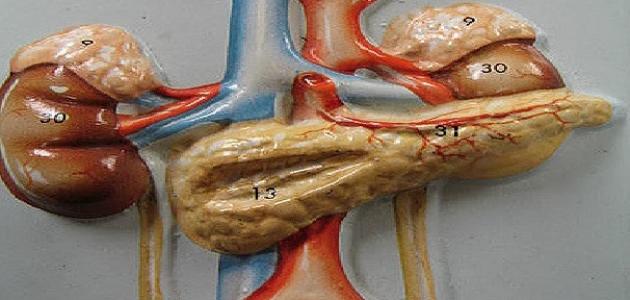Endocrine system
The endocrine system is considered an integrated device found in the human body, and it consists of a group of glands that secrete a number of hormones. Hormones can be defined as chemical substances that transfer information from one group of cells to another group with the aim of coordinating among them to regulate the number of cells. Among the functions and tasks, in fact, the hormones secreted from the endocrine system regulate the growth of the body’s cells, metabolic processes, and sexual functions and their development. It is worth noting that regulating the secretion of hormones from the endocrine system is through reaction or what is known as feedback. (in English: Feedback); That is, depending on the concentration of hormones in the blood and the body’s need to secrete them.
The reason for the name endocrine glands
The reason for calling the endocrine system this name is that they are considered ductless glands, and therefore they secrete hormones directly into the blood without an intermediary.
Types of endocrine glands
The endocrine system consists of a number of glands, which perform important tasks and functions, as follows:
- Hypothalamus or hypothalamus: The hypothalamus is located in the brain, and its function is to produce many important hormones that are responsible for a number of functions, including regulating body temperature, thirst, hunger, mood, sleep, sexual desire, and others. It is also considered the link between... The endocrine system and the nervous system in the body. As for the hormones secreted by the hypothalamus, they are as follows:
- Thyrotropin releasing hormone (TRH): This hormone regulates the secretion of thyroid hormones.
- Corticotropin releasing hormone (CRH), which regulates the body's response to physical and psychological stresses and suppresses appetite.
- Gonadotropin releasing hormone (GnRH): which stimulates the secretion of reproductive hormones responsible for puberty and sexual development.
- Growth hormone releasing hormone (GRH): which works to control physical growth in children and metabolism in adults.
- Somatostatin: which in turn inhibits growth hormone and thyroid-stimulating hormone.
- Oxytocin: It is a hormone responsible for performing some behavioral and reproductive functions in the body.
- Antidiuretic hormone: This hormone regulates water levels in the body, thus controlling blood volume and pressure.
- the pituitary gland: The pituitary gland is considered one of the most important glands in the body. This gland is located in a bony cavity in the brain behind the bridge of the nose, and is connected to the base of the brain. It is considered one of the most important glands in the body because it secretes many hormones that perform some important functions and stimulates some glands to secrete their hormones. In addition to its ability to store other hormones; The pituitary gland consists of two lobes: Front and back, the frontal lobe produces and secretes the hormone prolactin, growth hormone, adrenocorticotropic hormone, thyroid-stimulating hormone, and follicle-stimulating hormone. And the luteinizing hormone, while the posterior lobe stores the hormone oxytocin and the antidiuretic hormone.
- Thyroid: The thyroid gland is located in the front part of the human neck. It is a relatively small gland, weighs approximately 28 grams, and consists of two main lobes. Right and left, its function lies in absorbing iron from the food that humans eat and using it to produce the hormones known as thyroxine (T4) and triiodothyronine (T3), by combining iron with the appropriate amino acids, and after manufacturing these Hormones are released into the blood, and it is worth noting that the thyroid gland works under the regulation and control of the pituitary gland, which is regulated by the hypothalamus. It should be noted that the thyroid gland also secretes the hormone calcitonin, which helps regulate the level of calcium and phosphorus in the body. .
- Pineal gland: The pineal gland is located in the brain cavity, specifically in the middle of it. It is the gland that produces the hormone melatonin, which is responsible for regulating the human wake-sleep cycle.
- Parathyroid glands: Parathyroid glands, which are four glands located behind the thyroid gland, work to regulate calcium and phosphorus levels in the body, and thus play an important role in bone health.
- Thymus: The thymus gland is located behind the sternum between the lungs. This gland secretes the hormone thymosin, which stimulates the development of T cells, which play an important role in The body's immunity helps fight diseases, and it is worth noting that this gland atrophy when a person reaches puberty.
- Adrenal: The adrenal gland consists of a cortex (in English: Cortex) and a medulla (in English: Medulla), and it is the gland responsible for secreting hormones in response to stress. It is also the gland responsible for regulating blood pressure, balancing salt and water levels in the body, and regulating processes. Glucose metabolism.
- Pancreas: The pancreas is the gland responsible for producing the hormones glucagon and insulin, which are responsible for regulating blood sugar levels.









